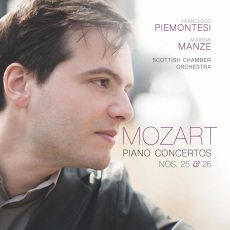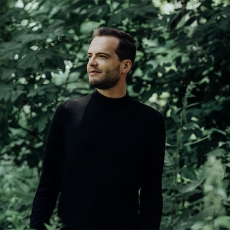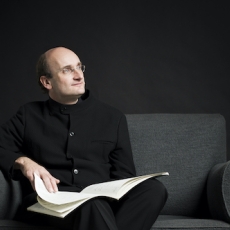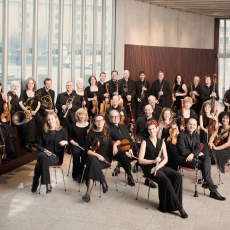Francesco Piemontesi, SCO & Andrew Manze - Mozart: Piano Concertos 25 & 26 - All Music
The listener has abundant choices available for all of Mozart's piano concertos, certainly including the two late ones heard here. Yet pianist Francesco Piemontesi adds much to the dialogue here. The performance does not really fit with either the traditional or the historical-performance categories; Piemontesi plays a modern grand, but the scale of the performance, backed by the Scottish Chamber Orchestra under Andrew Manze, is modest, and Linn does well acoustically with its choice of Usher Hall in Edinburgh. Manze and company really deserve the co-billing they get in the graphics, because this is a performance in which piano and orchestra are intertwined to an unusual degree. Piemontesi concurs with annotator Simon P. Keefe in treating the Piano Concerto No. 26 in D major, K. 537, and Piano Concerto No. 25 in C major, K. 503 (the D major concerto comes first on the program, as a kind of curtain raiser), as decisive new strokes in Mozart's concerto writing, and indeed as two of the most progressive works he ever wrote. He offers mostly deliberate tempos and long lines, resulting in performances that define large musical spaces. This works extremely well in the Piano Concerto No. 25, where the first movement clocks in at nearly two minutes longer than in Mitsuko Uchida's 2016 performance on Decca. The level of detail Piemontesi and Manze achieve, avoiding martial overtones in this trumpets-and-drums piece, is striking. Piemontesi plays a cadenza by Friedrich Gulda with his own "lead-in," an intriguing solution to the cadenza question. The D major concerto is more a matter of taste. In the slow movement, Piemontesi achieves an intriguing clockwork effect, but he does not fully persuade that Mozart was breaking new ground here, and the lightness of the music tends to be lost. In any event, this is far from a superfluous Mozart concerto recording, and it announces an important new Mozart interpreter.



